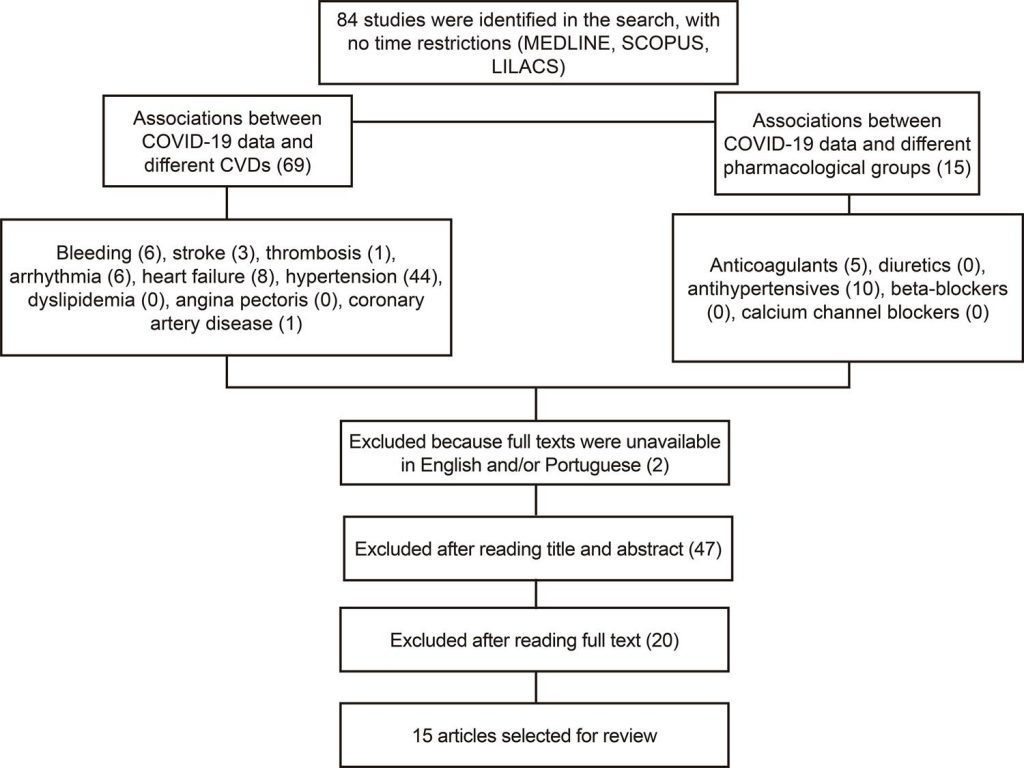International Journal of Cardiovascular Sciences. 31/jul/2020;33(4):404-11.
Challenges in Pharmacological Management of Cardiovascular Diseases in Covid-19: do Benefits Outweigh Risks?
Introduction
Cardiovascular diseases (CVD) are the main cause not only of global mortality but also of reduced quality of life. They cover ischemic heart disease, stroke, heart failure, peripheral artery disease, and various other heart and vascular conditions. In 2017, CVDs caused about 17.8 million deaths worldwide, corresponding to 330 million years of life lost and another 35.6 million years of life with disabilities. Almost 80% of deaths occur in low- and middle-income countries, such as Brazil, where the occurrence of CVDs and their risk factors are on the rise as a result of an ongoing epidemiological transition. In low-income countries CVDs greatly affect working-age populations, and the total economic loss resulting from this group of diseases is high, representing 2% of Gross Domestic Product. In addition, the disability caused by CVDs has economic consequences at multiple levels: individual, family, economic agents, public institutions, government, and society as a whole.
Recent studies also show that chronic conditions, such as CVD, increase the risk of aggravation and death associated with the new coronavirus 2019 disease (COVID-19), whose outbreak was characterized as a pandemic by the World Health Organization (WHO) in March 2020. The new coronavirus is a betacoronavirus called SARS-CoV-2 (Severe Acute Respiratory Syndrome coronavirus 2), phylogenetically identical to other coronaviruses capable of determining acute respiratory distress syndrome (ARDS), which is responsible for numerous deaths. The most common symptoms of COVID-19 include fever, cough, dyspnea, myalgia, fatigue, diarrhea, sore throat, chest pain, confusion, and lethargy. Acute and chronic cardiovascular complications have also been observed in the course of COVID-19, being attributed to several mechanisms, such as relative ischemia, systemic inflammation mediated by pathogens, with increased levels of several biomarkers. In this context, studies point to the relevance not only of chronic conditions, such as hypertension, but also of the age and immunological status of the host, characterizing a complex, multifactorial, and bidirectional model that can comprehend the drugs used to treat these pathologies.
[…]
467

